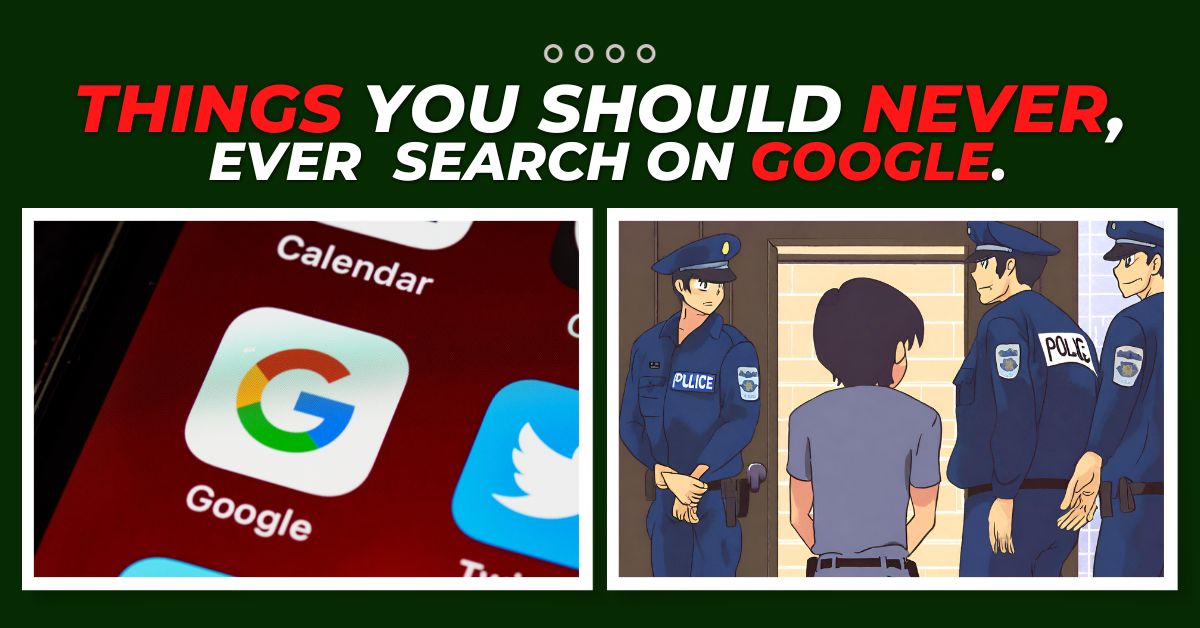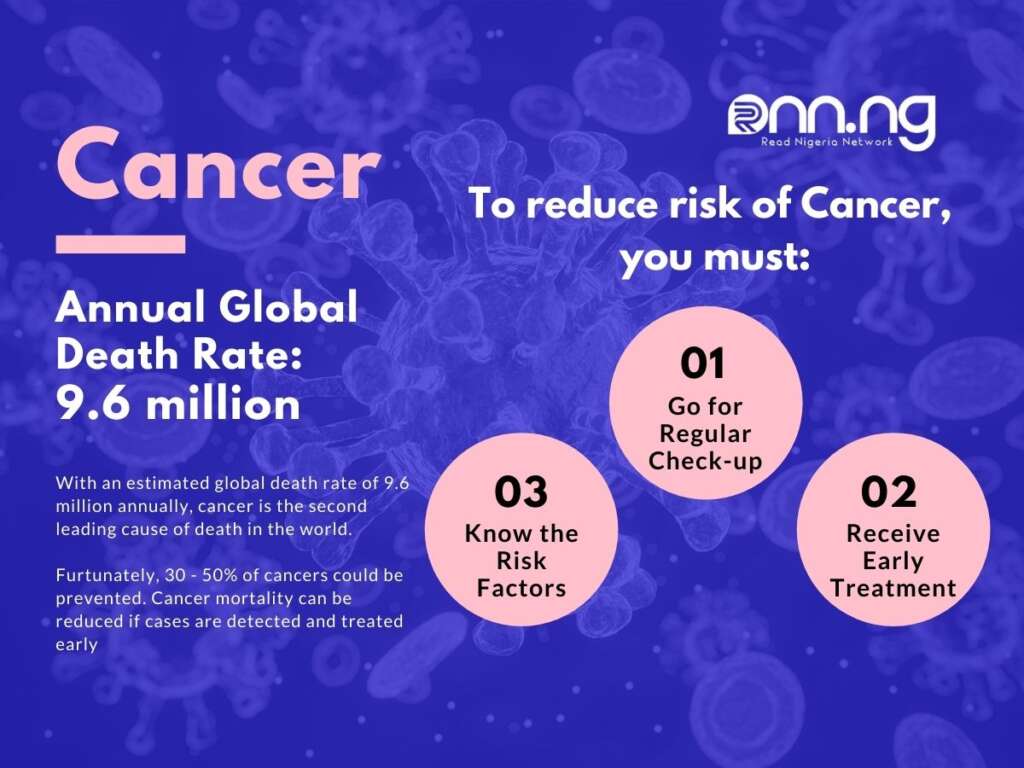Top Lists
Top 10 Things You Should Never Search On Google
Google is like the superhero of information. But, let’s be real, even superheroes have their limits. Here are a few things you should never, ever Google.

No doubt, Google is like the superhero of information, ready to swoop in and rescue you from the clutches of ignorance. But, let’s be real, even superheroes have their limits.
In this present age characterized by great technological advancement, knowledge has become so easy to attain at the push of a button.
You want to know how to tie a bowtie? Google it. Curious about the lifespan of a housefly? Google’s got your back. The internet is now home to almost every nugget of knowledge imaginable.
Yet, amidst the glory of instant wisdom, there are some dark alleys you shouldn’t venture into. It’s like Google has its own secret stash of forbidden knowledge, and stumbling upon it might just be asking for trouble.
So to say, there are corners of the web where caution is paramount. Some searches may offer more problems than solutions.
In this article, we’re putting on our virtual detective hats to uncover the mysteries of what you should never, ever search on Google. These are the kind of searches that won’t give you answers but might toss you headfirst into a rabbit hole of problems.
#1. Medical Symptoms

Looking up medical symptoms on the internet.
Oh, the classic tale of falling down the symptom-search rabbit hole – a journey many of us have embarked upon. You start feeling a bit off, and the next thing you know, you’re consulting the all-knowing oracle, Dr. Google.
It’s a shared experience, right? Feeling a tad unsettled, you decide to investigate your symptoms online. Suddenly, the search results become a self-diagnosis odyssey, and you find things that eerily “seem the way you feel.“
Let’s face it – caring about your health is a noble pursuit. However, seeking the meaning of your symptoms on the vast expanse of the internet is like navigating a medical minefield.
There are countless websites out there dishing out symptom interpretations, but here’s the kicker – most aren’t run by medical professionals.
Basically, it’s quite the opposite – looking up the meaning of your symptoms will most likely leave you in a state of panic and distress.
So, here’s a friendly plea: resist the urge to consult “Doctor Google.” Instead, do yourself a favor – make an appointment and have a chat with a real, flesh-and-blood doctor. Your peace of mind will thank you later.
#2. Anything Criminal
I get it – curiosity has a way of leading us down some dark alleys. The internet, with all its vastness, might make you ponder over questions like “how to make a bomb,” “how to kill someone,” or even “how to rob a bank.” But, here’s the reality check: this is serious business.
Sure, your interest might be innocent, stemming from a mere curiosity about the criminal underworld. However, what you might not be aware of is that there are agencies out there actively keeping tabs on these kinds of searches. Yes, you read that right – someone’s watching.
Believe me, getting into trouble for just being curious is not the kind of excitement you’re looking for. So, here’s a friendly advice nugget: resist the temptation to explore the criminal mastermind side of Google. Your digital footprints are more visible than you think, and steering clear of such searches is a wise move to stay on the right side of the law.
#3. Cancer

Let’s talk about the big “C” word – cancer. It’s the ultimate case of mistaken identity in the world of diseases because, truth be told, it shares symptoms with a bunch of other conditions.
You’ve probably heard the saying, “the less you know, the better.” Well, this is one of those situations where ignorance might just be bliss. Symptoms of various diseases can play a tricky game of hide-and-seek, mimicking each other and causing unnecessary panic.
Thinking you’ve got a one-way ticket to the worst-case scenario because of a symptom you googled? Hold your horses. More often than not, harmless conditions can masquerade as serious ones, leading you down a rabbit hole of unnecessary worry.
So, here’s the memo: resist the urge to decode symptoms online. Instead, make a date with a real-life doctor who can sift through the confusion and provide you with the right answers. Your peace of mind deserves the expertise of a professional, not the uncertainty of a Google search.

#4. Skin Conditions

dermatologist doctor inspecting woman skin for moles and melanoma
Caught yourself staring at a new blemish and the curiosity bug kicks in? Hold up before you dive into the depths of the internet searching for “round, reddish mole.”
Skin conditions can be a tricky territory, with a multitude of diseases and disorders lurking in the shadows. And here’s the catch – the online world is not shy about bombarding you with images and information that can be, let’s just say, visually intense.
Trust me, scrolling through gruesome skin conditions can be more disturbing than helpful. Save yourself the trauma and the potential nightmares by resisting the urge to Google your way through skin-related mysteries.
Instead, do yourself a favor and make a date with a dermatologist. Let the professionals handle the skin talk – they’ve got the expertise and the know-how to guide you in the right direction without the unnecessary horror show that Google images might unleash.
#5. Whether a Product is Safe or Not

Navigating the vast ocean of the internet, you might be tempted to seek opinions on the safety of a product.
Trust me, it’s a rabbit hole of ‘acclaimed experts’ dishing out their thoughts, and let’s face it, bias and truth often dance a confusing tango.
Surely, you will find enough number of forums, with some screaming ‘yes’ and others emphatically shouting ‘no.’
But here’s the catch – gambling with your safety based on internet opinions is like playing Russian roulette with too many chambers loaded.
Instead of relying on the hit-or-miss world of online forums, consider a more reliable route. Seek advice from real professionals – those in the medical or relevant field.
If you’re curious about a product’s safety, ring up the company that produces it. Cut through the noise and get straight to the source for clarity. Your safety deserves more than a game of internet roulette.
You may want to check out The Unspoken Dilemma: Social Media And Your Mental Health.
#6. How to Earn Without Any Hard Work

It’s amusing how the search volume for ways to earn without breaking a sweat keeps climbing every year. The allure of a shortcut is real, no doubt.
Yet, if you’re genuinely aiming for substantial progress in life, it’s best to resist the temptation of Googling the path of least resistance.
While the promise of effortless success may be tempting for some, the reality check is that true and lasting achievements usually involve a healthy dose of hard work, dedication, and perseverance.
So, if you’re looking for a shortcut to success, consider redirecting that energy towards a more sustainable approach.
Real progress often comes from putting in the effort and staying committed to your goals. Remember, there are no shortcuts to genuine success and fulfillment.
#7. Quotes

Ever felt a certain way that didn’t quite align with the crowd? We’ve all been there, and the urge to seek validation is real. It’s tempting to turn to quotes, hoping that someone, somewhere, has articulated what you’re feeling.
But here’s the thing: just because someone said something and it’s now quoted by someone else doesn’t automatically make it gospel truth. Sure, sometimes quotes hit the nail on the head, but there’s a catch.
The vast landscape of quotes is a mixed bag of wisdom, nonsense, and everything in between. Distorted ideas and thoughts often make their way into the realm of quotable sayings.
Context matters, and not knowing the backstory behind a quote can lead you down a path of misinterpretation.
So, the next time you find solace or guidance in a quote, take a moment to understand the context. Don’t let the allure of a well-phrased sentence misguide you. Context is key, and blindly polishing a quote to fit your narrative might not lead you where you want to go. Stay wise, stay informed.
#8. Giving Birth

We’ve all witnessed those dramatic birthing scenes in movies – women yelling, doctors scrambling, the whole shebang. It’s intense, even on the silver screen. Now, brace yourself, because the reality of giving birth is a hundred times more raw and, well, to be honest, a bit disturbing.
Searching for the unfiltered truth about childbirth, especially for women, can be more than a little overwhelming. The process is intricate, and the visuals can be daunting, to say the least. Watching it unfold might even plant a seed of doubt about having children altogether.
So, here’s a friendly word of advice: spare yourself the potential trauma and skip the Google search on giving birth. This advice extends to Caesarean sections as well.
If the curiosity bug bites, rely on information from credible sources, attend prenatal classes, and, when the time comes, trust the professionals to guide you through the real thing. Sometimes, a little mystery is a good thing.
#9. Anything Embarrassing

#10. Porn

For the curious lovebirds or newlyweds out there, the temptation to Google “porn” might arise in the quest for a little insight into the world of intimacy.
However, it’s crucial to understand that porn is a scripted and professionally acted genre. What you see on the screen may depict scenarios that are far from the reality of a normal and healthy sex life.
Some portrayals may involve uncomfortable or unrealistic methods of pleasure attainment that don’t necessarily reflect the dynamics of a typical intimate relationship.
It’s important to recognize that personal preferences in this realm can vary, and what your partner finds intriguing might not align with your own tastes, and vice versa.
Moreover, the addictive nature of porn is a real concern, and falling into its web can lead to unnecessary complications in your personal life.
To sidestep these potential pitfalls and maintain a healthy perspective on intimacy, it might be best to resist the urge to Google explicit content.
Instead, focus on open communication with your partner to understand each other’s desires and establish a mutually satisfying and respectful connection.
Remember, real-life relationships are not scripted scenes, and genuine communication is the key to a fulfilling and harmonious intimate life.
Conclusion
The vast expanse of the internet offers a treasure trove of information, but there are certain things that are better left unexplored through a Google search.
Whether it’s the darker realms of criminal activities, attempting to self-diagnose complex health conditions, or seeking shortcuts to success, the potential pitfalls are numerous.
Moreover, the temptation to explore explicit content or embarrassing inquiries can have lasting consequences in the digital age, where information lingers long after we think it’s been deleted.
The distorted portrayals in certain search results, such as those related to childbirth or intimate relationships, can create unnecessary anxiety or unrealistic expectations.
The key takeaway is this: exercise caution and discretion in your online explorations. In the age of instant information, navigating the web’s potential pitfalls requires a thoughtful and discerning approach to ensure a safe and enriching online experience.
When faced with questions or concerns, seeking advice from professionals, whether it’s a doctor, a dermatologist, or a relationship expert, is often the wiser course of action.

